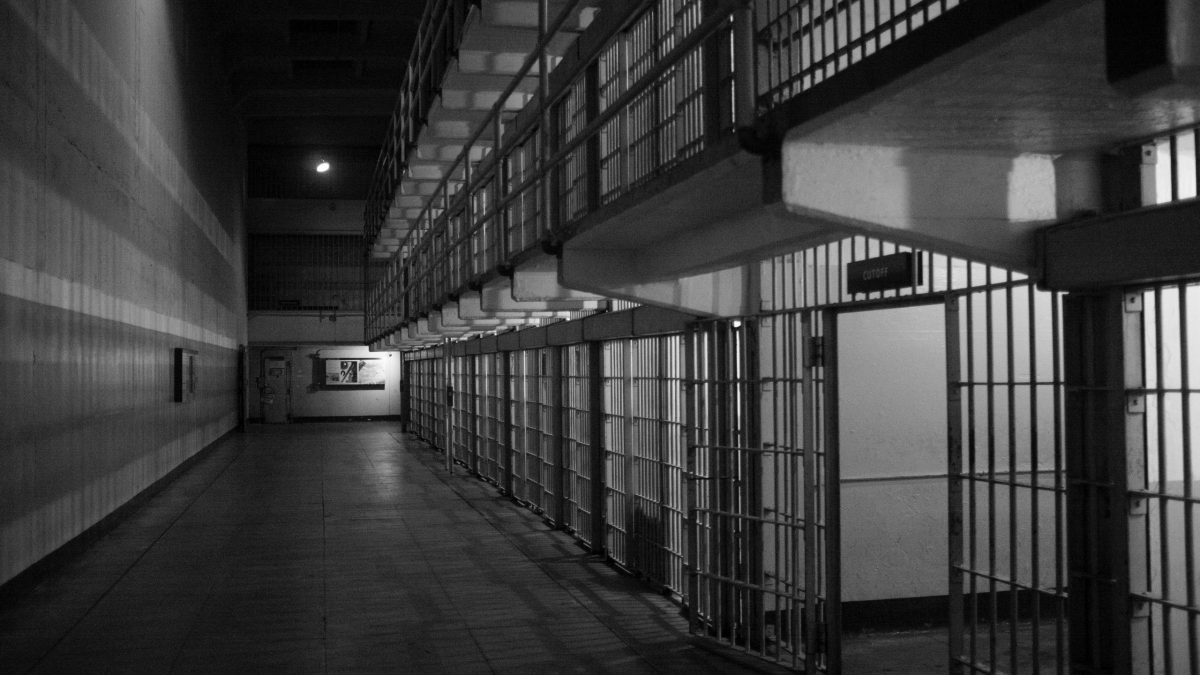
Interview with Sheata Karim, Founder and Managing Partner of Grayfords
June 1, 2020
Study techniques aspiring lawyers shouldn’t ignore
June 1, 2020Article by Catherine Allen
The extent to which prisoners should be afforded rights, especially recently with regards to the right to vote, and whether they should have rights at all is a highly divisive and often emotionally fuelled topic. Although studies have shown a shift to a less punitive attitude in the British public the dominant view is that prison should be focused upon punishment rather than rehabilitation with constant calls from politicians to “get tough on crime”. It is also the case that those imprisoned are often ‘looked down’ upon by society, seen as lesser members of society and hidden away behind locked doors. As a clear example, there is a very low employment rate of offenders: The Ministry of Justice recorded that only 17% of those released were employed in the following year. Additionally, YouGov found that 50% of employers would never consider employing an offender.
This article is not here to discuss the merits of such a view, rather it is to highlight the importance of protecting the rights that prisoners do have and to set out what such rights amount to. It is argued for a number of reasons that prisoners are one of the most vulnerable groups within society: first, prisoners are under the absolute control of prison officers and prison authorities who have the power of a constable which can be found in s8 of the Prison Act 1952. Not only does this section set out some of the limitations upon their liberty but it also allows the use of “reasonable force” by prison officers against prisoners “when necessary”. This has the potential to result in mistreatment of prisoners. Although this is a possibility in all penal systems, those that are less regulated and have higher corruption rates (likely to be poorer countries) will be more prone to such an issue. Secondly, the general prison environment and its intensity can exacerbate both physical (threats from other prisoners for example) and mental health issues. There had been an abundance of research and statistics on the growing issues of self-harm and suicides in prison, a few examples: The Ministry of Justice found that self-inflicted deaths are 6.2% more likely in prison in comparison to the outside, suicide rates in prison increased by 23% in 2019 (noted by the Independent) and the extent of the problem can be seen by the fact that the House of Commons ordered a report to be made on the mental health in prisons by the committee of public accounts. Lastly, the fact that there is an impulse to hide away prisoners and neglect them simply as “outcasts” who are not “model citizens” means that very little attention is paid to ensuring their protection, highlighting concerns with their treatment or listening to their complaints- these are often dismissed due to prisoners’ not being ‘deserving’. This first section has hopefully outlined the reasons as to why it is crucial to pay attention to and protect prisoners’ rights.
Articles 2 and 3 of the ECHR
So, what rights do prisoners have? And how are their rights curtailed in comparison to the rest of the population? Of course, this differs from country to country, but in terms of the UK it is clear that prisoners suffer from a loss of liberty, however, the international commitment to the European Convention of Human Rights limits the amount of rights that can be removed. The European view is that prisoners are sent to prison as punishment and not for punishment. Therefore, prisoners are to retain all civil rights apart from those connected to their loss of liberty meaning that they retain many of their other Human Rights- such a requirement is set out by the Council for the Prevention of Torture (CPT). Those of the utmost importance that will be focused upon are the right to life (article 2) and the right not to be subjected to torture, inhumane or degrading treatment (article 3). Moreover, European institutions ensure that such rights are upheld: the CPT visits and monitors countries’ penal systems and prison conditions to ensure that their practices and material conditions are of the standard required and do not amount to breaching article 3. This is besides the ability of the individual to bring a claim domestically under the Human Rights Act against the public authority or internationally and apply to the European Court of Human Rights against the state. The CPT writes reports after visits and makes recommendations as to improvements- such reports have become “soft law”: countries are expected to respond to the recommendations, make the relevant changes, and CPT texts are regularly referred to in the Strasbourg European Court of Human Rights. As a specific example, the CPT has revised the European Prison Rules (2006 most recently) which set out the minimum standard rules for the treatment of prisoners. In addition, as a member of the UN the UK has an international obligation to abide by the standards set out: for example, the UN standard minimum rules for the treatment of prisoners (otherwise known as the Nelson Mandela rules).
Although it may be surprising, our article 2 right: the right to life is not absolute. The state is allowed to use force (that unintentionally results in the loss of life) in four specific scenarios as long as such force was “absolutely necessary”- with the four scenarios being: to protect against violence, to effect an arrest, to prevent the escape of a prisoner and to squash rioting (McCann v United Kingdom). Although the social reasoning behind such exceptions is understandable: such force will often be used in the aim of the protection of others (whether that be other prisoners or members of the public), it is argued that prisoners face a greater threat to not having their article 2 right protected in comparison to the rest of the population as the majority of the ‘exceptions’ are specific to prison-based circumstances.
On the other hand, our article 3 right: the right to not be subjected to torture, inhumane or degrading treatment is absolute. This means that there are no circumstances that will be able to justify any person being subjected to such treatment. What is regarded as “torture”, “inhumane” or “degrading” treatment is more relaxed than might be first appreciated: the infliction of this serious physical or psychological harm upon a prisoner does not need to be intentional or deliberate- for example, a lack of provision of adequate medical care (McGlinchey v United Kingdom, Ostrovar v Moldove) or the material conditions of cells not satisfying the minimum requirements (Kudha v Poland, Peers v Greece) as set out by the CPT can amount to an erosion of a prisoner’s article 3 right.
Both article 2 and article 3 rights are referred to as “negative rights” or ‘liberties’- they are the freedom from something rather than the freedom to be able to do something. However, to protect such rights a number of positive obligations are enforced upon prison authorities. In relation to article 2, prison officers are expected to be trained and there is the requirement for adequate operational control to ensure that the use of force against prisoners was “absolutely necessary” in the circumstances and could not have been avoided by more efficient planning and training. In relation to article 3: the minimum material conditions as set out by the CPT for living conditions by prisoners needs to be met, the protection of prisoners from violence either from others: for example, through screening and searches to recover weapons (Edwards v United Kingdom). Or, from themselves by preventing the circulation of drugs and placing those known to be at risk on suicide watch (Renolde v France) and providing consistently adequate medical care (McGlinchey v United Kingdom) are some of the obligations placed upon prison authorities to ensure that prisoner’s article 3 rights are protected.
Are These Rights Protected in Practice?
What has been set out already is purely theoretical- this is what is expected. However, to what extent are such principles upheld in the UK and do we adequately protect prisoners’ rights? This is a particularly important question as England, Scotland and Wales have the highest imprisonment rate in Western Europe. In England and Wales there are 139 prisoners for every 100,000 people and this figure rises to 150 in Scotland. Offender management statistics shows that the prison population has risen by 69% in the last 30 years. Furthermore, as a country with great international political prestige and influence, we set an example to other countries as to what practices to employ. It is argued that it is hard to know the reality and although the UK affords better treatment in the penal system than in many other countries it is clear that there are still issues that need to be addressed. Due to the soaring imprisonment rates already highlighted, problems of overcrowding, understaffing, riots, violence and drug problems are getting worse. With the prison reform trust having calculated that 20,000 prisoners (almost ¼ of the prison population) are held in overcrowded conditions. Moreover, the low funding and proportionally low staffing mean that less help can be given to those most vulnerable in prison- especially those suffering from mental health, self-harm and suicidal tendencies which have led the Ministry of Justice to declare a “mental health emergency” within prisons. Such a declaration is justified: in 2016, there were 116 recorded self-inflicted deaths meaning one death every three days. Furthermore, the UK has been seen to support practices that breach such fundamental rights. First, the treatment of [suspected] IRA prisoners during the Irish troubles in the 1970s: for example, the “hooded men”(along with many similar stories)- it is claimed that in 1971, the British army took 14 men into prison and subjected them to ‘interrogation’ that amounted to torture. More recently, following the 9/11 attack, Guantanamo Bay was opened in 2002 by President Bush. Guantanamo Bay is known as being a site of torture and inhumane treatment of suspected terror suspects (of the 779 prisoners taken there only 7 have actually been convicted) and the practices used; which include torture, stress positions, sleep deprivation, physical assault, sexual humiliation and a lack of food or water; have been heavily criticised by international organizations. Amnesty International declared the camp “the gulag of our time” and has consistently (alongside other groups such as Human Rights Watch, Redress etc.) condemned the practices and offered assistance to those imprisoned there. The United Nations has also consistently condemned the prison camp as well. The UK has aided the practices by assisting in the transportation of suspects to Guantanamo Bay (particularly from ‘black sites’)- allowing the landing and refuelling of planes as part of the CIA’s extraordinary rendition and detention programme. Moreover, there have been allegations of MI5 agents assisting in the torture of detainees at the bay. These case studies also highlight the general view that the protection of rights of terror subjects are of even lesser importance than ‘ordinary’ prisoners- this is why the initial introduction of the Human Rights Act 1998 was not received well because it was seen as protecting terrorists. The horrific treatment is often justified on the basis of the protection of society and gaining of information with the infringement of human rights being regarded as justifiable due to the ‘greater good’ that was being achieved (similar arguments that President Bush used to defend Guantanamo Bay as part of the ‘war on terror’).
However, it should be remembered that the influence of fear can often distort what we view as ‘justifiable’ and cause irrational judgments in tense times. This could be raised as a general flaw to the Human Rights systems. Rights are broadly stated meaning there is a substantial degree of ambiguity around how they should be protected and what actions do result in breaches. Although there is a ‘margin of appreciation’ that countries are given to implement such rights, this should rather be viewed as a practical measure to aid the efficient implementation and upholding of rights in different countries. Allowing rights protection across a range of cultures. It is conceded that such a margin may be more prevalent and bring ambiguity when the core rights are moved away from. But such is not a significant problem with the central rights such as the right to life, the right to not be subject to torture etc. This is due to the ‘extreme’ actions required to breach such rights. For example, in the case of Guantanamo Bay, although previously stated that circumstantial fear must be taken into account, this is not a justification or even an excuse. It is merely context which can work to explain the actions taken by the US and many other aiding Governments. However, such institutions knew of the Human Rights violations- shown by the US Government’s establishment of the detention camp in Cuba and the use of the geographical location to avoid legal repercussions.
Prisoners’ Rights to Vote
As a final note on the topic of prisoner rights a recent ‘quiet’ but limited development has occurred in the UK. There has been a significant stand-off between the UK and Strasbourg regarding the right of prisoners to vote- with the European Court of Human Rights holding six times that the blanket ban on prisoners inability to vote being a violation of the right to free elections (protocol 1, article 3 of the ECHR). The most recent case regarding this was Hirst v United Kingdom (No2). However, Theresa May finally brought an end to the blanket ban by allowing prisoners on temporary release and on home curfew to vote. Although this in itself does not amount to a large extension of the franchise as only a few hundred prisoners will gain the right to vote it is still significant. It brings an end to the ‘blanket ban’ and sets the stage for further expansion of prisoner voting in the future.
To conclude, the topic of prisoner and terrorist treatment and protection of rights is a highly divisive but important topic to discuss. The protection of the rights of those imprisoned is extremely important and in the UK, our international obligations ensure that prisoners are afforded a higher degree of protection in comparison to other countries around the world. However, the UK has not been perfect in the protection of prisoner rights- especially in the face of terrorism. It is important for the UK to work at ensuring that prisoner rights continued to be upheld adequately, that prisons achieve the international standards required especially with the added pressure being put upon the penal system and continue to work to set good examples to the rest of the world.





